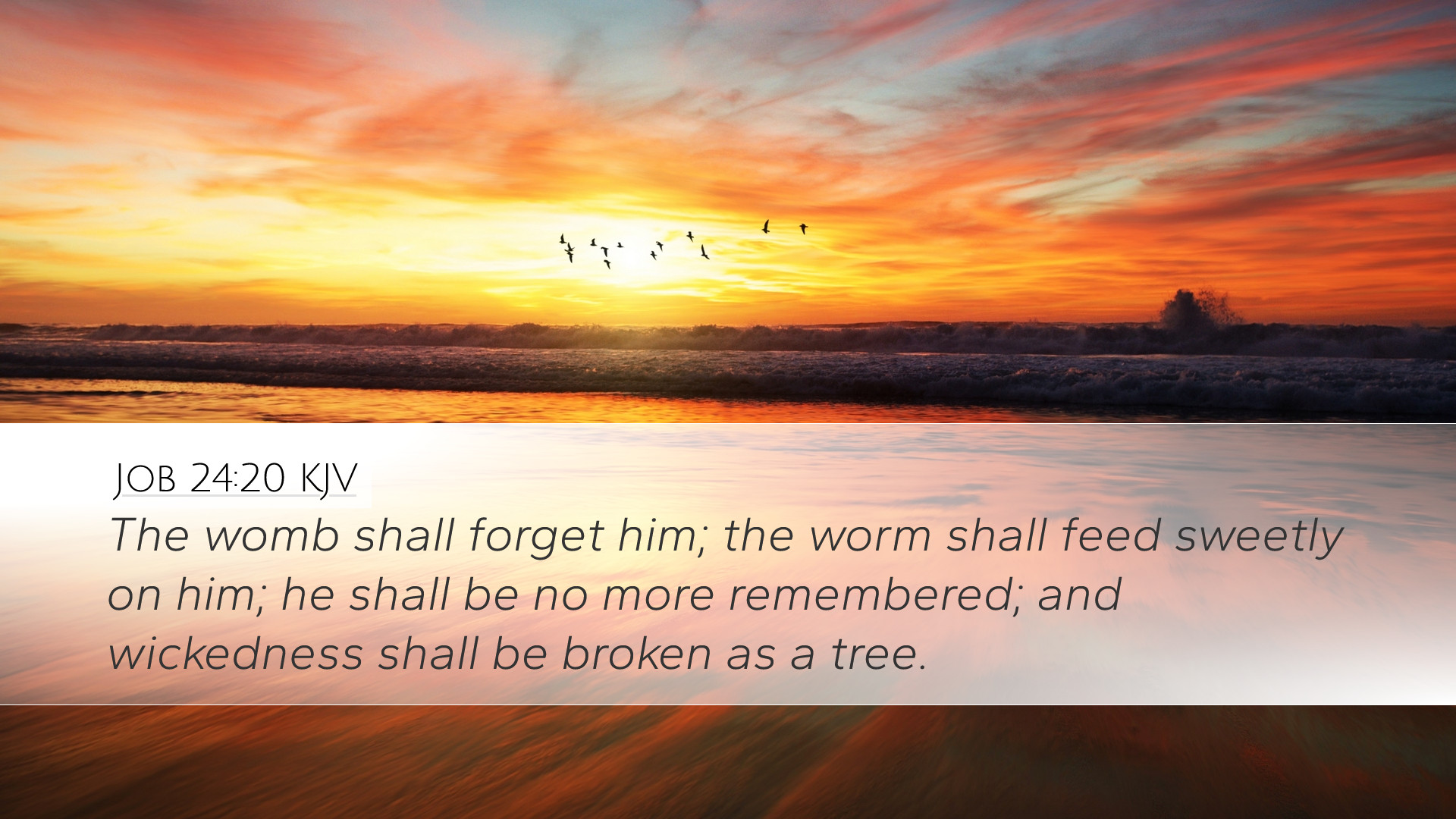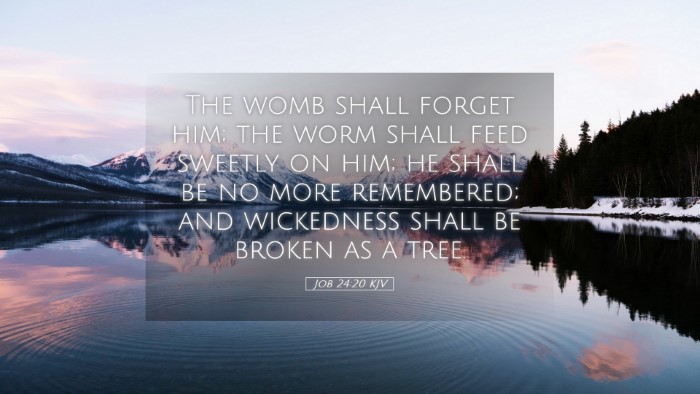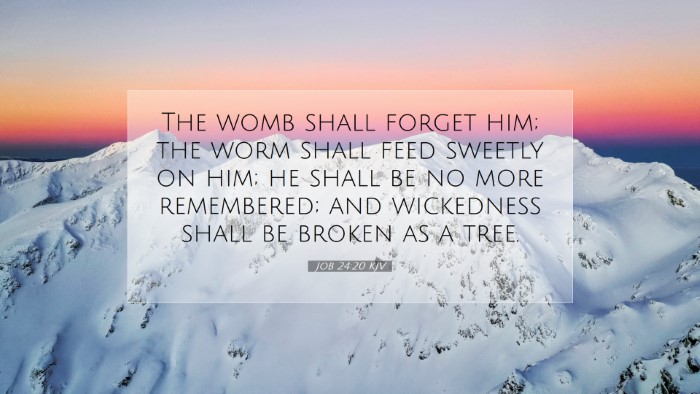Old Testament
Genesis Exodus Leviticus Numbers Deuteronomy Joshua Judges Ruth 1 Samuel 2 Samuel 1 Kings 2 Kings 1 Chronicles 2 Chronicles Ezra Nehemiah Esther Job Psalms Proverbs Ecclesiastes Song of Solomon Isaiah Jeremiah Lamentations Ezekiel Daniel Hosea Joel Amos Obadiah Jonah Micah Nahum Habakkuk Zephaniah Haggai Zechariah MalachiJob 24:20
Job 24:20 KJV
The womb shall forget him; the worm shall feed sweetly on him; he shall be no more remembered; and wickedness shall be broken as a tree.
Job 24:20 Bible Commentary
Commentary on Job 24:20
The verse Job 24:20 reads: "The womb forgets him; the worm feeds sweetly on him; he is no more remembered; and wickedness is broken like a tree." This passage encapsulates a profound reflection on mortality, the inevitability of death, and the transient nature of life, particularly as it pertains to the wicked.
Contextual Overview
In the broader context of the Book of Job, this verse appears amidst Job’s discourse on the plight of the wicked. Job is grappling with the apparent prosperity of those who live in rebellion against God while he himself suffers, despite his righteousness. Here, Job raises a poignant observation on the fate that ultimately befalls the wicked.
Thematic Elements
- Mortality: The reference to the womb forgetting signifies the finality of death, which swallows the wicked without regard. It is a reminder that earthly life is fleeting.
- Divine Justice: Despite the seeming injustice of life, this verse asserts that God's justice prevails, as even the wicked will face their demise and be forgotten.
- Transience of Life: The imagery of the worm feeding on the wicked serves as a stark reminder that whatever glory or power they may have will ultimately decay and be consumed.
Commentary Insights
Matthew Henry: Henry remarks that the fate of the wicked is both inevitable and tragic. He underscores that their memories perish, and their lives end in a bitter irony. The statement, "the womb forgets him," conveys that once deceased, not even the womb that gave life bears memory of them, marking an utter obliteration of legacy.
Albert Barnes: Barnes elaborates on the inevitability of destruction that befalls the wicked. He emphasizes the certainty that death will come to all, regardless of one's earthly status. The worm—a symbol of decay—signifies that all, regardless of their righteousness or wickedness, are subject to the same ultimate fate of death and deterioration.
Adam Clarke: Clarke takes a more philosophical approach, suggesting that the phrase encapsulates a universal truth about life. He notes that the "sweetness" with which worms feed metaphorically represents how life, once shattered by sin, is consumed in the decay of moral integrity, leading to eventual spiritual death.
Theological Implications
The theological significance of Job 24:20 extends to discussions on divine justice and the nature of sin. This verse confronts readers with the stark reality of God's judgment and the reminder that temporal power and pleasure are fleeting, serving as a sober caution against wickedness.
Practical Applications
For pastors, there are profound implications in this verse for teaching about sin, repentance, and the hope of redemption through Christ. The reminder that the wicked will not ultimately prevail encourages messages of hope and perseverance amidst trials.
Students of theology can explore the contrast presented in this verse with New Testament themes of resurrection and eternal life, lending depth to the discussions about life after death and God's eventual justice.
For scholars, examining the literary devices within this text opens avenues for deeper understanding of the poetic structure of Job and its theological reflections on human existence.
Conclusion
In summary, Job 24:20 resonates with timeless truths about mortality, divine justice, and the transitory nature of life. It serves as a reminder to regard our earthly lives through the lens of eternity, encouraging both reflection and action in the face of moral choices.


